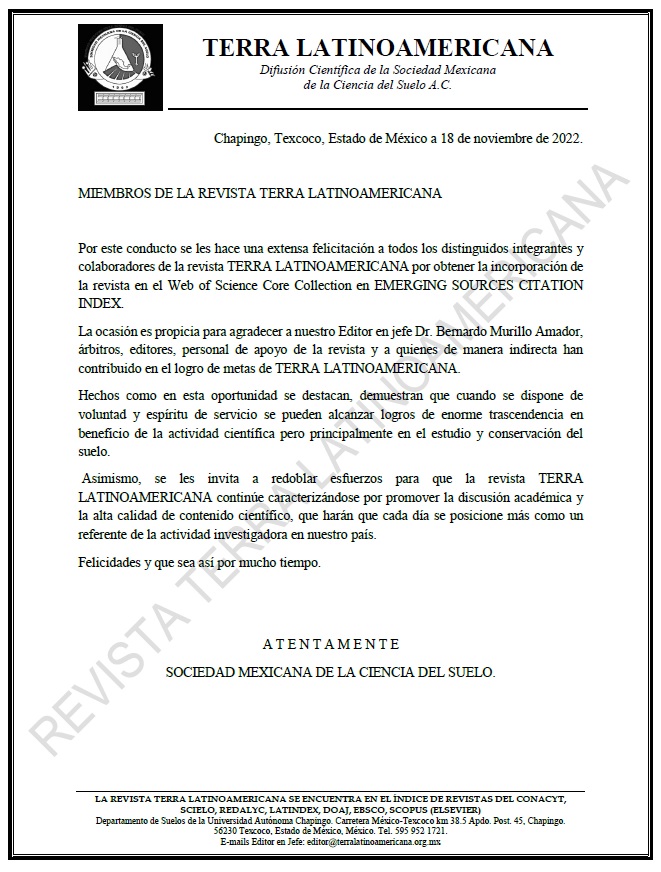Biofortification with selenium increases bioactive compounds and antioxidant capacity in tomato fruits
DOI:
https://doi.org/10.28940/terra.v39i0.979Keywords:
nutraceutical quality, productivity, Solanum LycopersiconAbstract
The objective of biofortification is the human consumption of high nutritional quality food, rich in micronutrients. Selenium (Se) is an essential micronutrient in human nutrition, and its essentiality has not been evidenced in plants. However, its application in crops and subsequent consumption can mitigate the deficiency of this micronutrient in the diet of human populations. This work analyzes the capacity of sodium selenite (Na2SeO3) to increase yield, biosynthesis of bioactive compounds and their accumulation in tomato fruits. For this, five treatments were applied via nutrient solution: 0, 2, 4, 6, and 8 mg L-1. At harvest, the nutraceutical quality and the accumulation of Se in fruits were quantified, as well as the productivity of tomato plant. Biofortification was positively affected by the biosynthesis of phytochemical compounds and their concentration in fruit, although tomato yield decreased. The incorporation of Se in nutritive solution is an alternative to increase both the biosynthesis of phytochemical compounds and the concentration of this element in tomato fruits with the possibility of improving public health through its consumption.
Downloads
Publication Facts
Reviewer profiles N/A
Author statements
- Academic society
- Terra Latinoamericana
- Publisher
- Mexican Society of Soil Science, C.A.
















